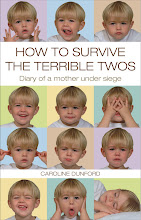Working from home, as most writers do, lays you open to terrible, terrible traps. Now, I have a wonderful partner, who doesn't expect me to spend my time clearing up the domestic disasters my children regularly create, but of course they do have to be done. School holidays tend to upset all regular plans, but outwith these I am very strict on the hours I work. I need to be. My brain offers me a thousand reasons a day to stop doing something I love and go and do something far more boring instead.
Here's a list of things that happen to writers working at home. See if you can work out which I think are genuine reasons for stopping writing.
- the phone rings (friends and family know you're liable to be in)
- the meter man, local religious salesman, postman or lost soul rings your doorbell shattering your train of thought
- the house is terribly untidy and you're unsure if there are enough clean towels to last the weekend
- there's that awfully good programme on the telly that no one else is interested in and would really help your research
- it's sunny and you're feeling down - a good dose of vitamin D would be just the thing
- your professional blog is looking very empty
- you know you absolutely must clean the cooker
- a friend phones to ask for urgent help on a script or essay
And my take on the above -
- the phone is an interrupt device. Unless you have good reason to answer, such as (in my case)fearing what my wonderful but non-conformist six year old son might have got himself into at school, don't answer. If you don't have a answer service of some kind (and really any professional should have one) if it's urgent they will ring back. Encourage friends and family to contact you by email, so you can answer when you choose and won't get drawn into lengthy conversations at inappropriate times. If you can't bear to turn your mobile off then switch it to silent and let the text messages accumulate until you're ready to read them. If you *have to* answer then keep the conversation short and to the point. Be polite, but tell people when they can reach you and that you are working now. No one expects a surgeon to be up for a chat in the middle of an operation, so why should they expect you to break off from building an entire world?
- For safety reasons you should have a spy-hole or camera in your door- use it. But even before you get out of your chair to peek consider the fact that the world will not end if you don't open the door. You can opt to give your own meter readings for supplies by phone or email. Religious salesmen and other lost souls you probably don't want to talk to anyway. Expecting a parcel? Then yes, maybe you should check. People coming to the door with serious news are rare, but if you can't rid yourself of the paranoid fear that this is Agent Million or a policeman come to give you terrible tidings then open the door, but keep it brief. Unless it really is startling news then two minutes is your target time from getting up to sitting back down in your chair.
- The untidy house. If you worked in an office you wouldn't be home to do this. Do not confuse working time with trying-to-get-everything-else-done time. There are advantages to working from home - a smartly tidy and overly clean house should not be one unless you are working as a housekeeper.
- That awfully good programme on the telly can be watched at any time. Do you need to watch it now? Will it help you where you are in this manuscript? Unlike fish recordings keep.
- It's sunny and you're feeling down. I consider this a good reason to leave your desk. As a species writers are very prone to depression, and there are days when things genuinely *won't* happen. So on very, very rare occasions when you are enveloped by your own personal black cloud and pursued by the raging dogs of misery quit your desk, go out in the sun, and take the day off. If you often feel like this buy a sunlight lamp or talk to your GP!
- Yes, professional blogs do need to be maintained. Allocate time to write for these. Don't use your creative time.
- Well, yes, you shouldn't have let your cooker get so filthy, but it's your brain playing tricks on you and trying to get you away from writing that hard scene or finding your way out of a plot tangle. The accomplishment you feel on cleaning the cooker will be nothing compared to the satisfaction you will feel when you get some real work done. Clean the cooker later. Keep a notepad on your desk solely for urgent tasks you suddenly remember when you're writing. Record the task and (unless it's something dire like turning off the gas) let it go until after your writing time.
- Friends and colleagues in need always deserve consideration as long as you reserve the right to say no. However talented you are others will only take your writing career as seriously as you take it yourself. If you constantly agree to help then your help will be sought constantly and your own work will suffer.
It is certainly true that you can think about your work while you are doing other things. But it is also true you can spend your life having ideas instead of writing. A writer writes.






